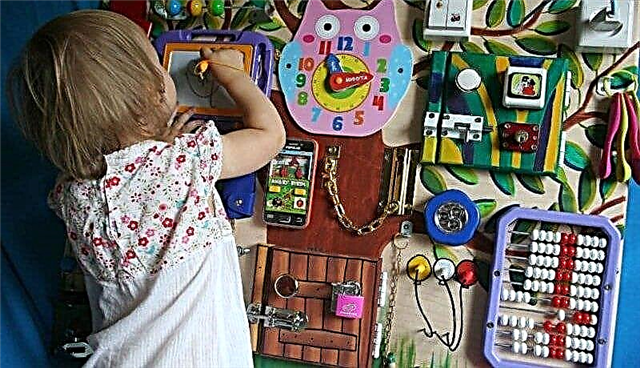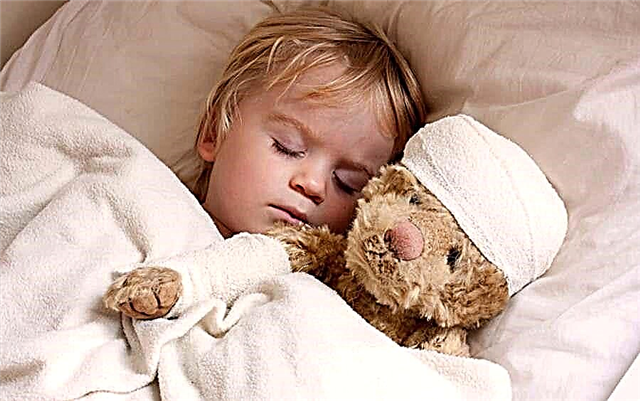Upset stomach and infectious diseases of the gastrointestinal tract are not always accompanied by fever. However, even if the temperature is normal, diarrhea and vomiting should not be ignored, these symptoms are a sign of obvious trouble. The younger the child, the more dangerous this condition is. The situation is most serious in infants under one year old - for them, any, even the most insignificant, diarrhea, combined with nausea, threatens dehydration.

Children often have stomach upset without fever
Diarrhea and vomiting without fever
It happens that the child does not have vomiting and diarrhea. Nausea and loose stools may be the only symptoms of the illness. Sometimes they can be joined by symptoms such as:
- Lethargy, motor retardation;
- Refusal to breastfeed or complementary foods;
- Allergic rash on the face and body;
- General restlessness of the baby, poor sleep.
Sometimes this phenomenon goes away by itself without treatment, but it is better not to hope for this and call a doctor at the first sign of trouble.

The lethargy of the baby is a common sign of poisoning.
Attention! If the cause of the disorder is a viral infection, there will certainly be an increase in temperature, even a slight one. It is caused by the fact that the body is fighting the virus that has entered it.
Possible causes of occurrence
A doctor will help identify the cause of the disorder. This may require the appointment of additional examinations. Most often, their list includes ultrasound, urine and blood tests.

Diarrhea and vomiting have different causes.
Diarrhea in a child without fever is often due to teething. During this period, the baby produces a lot of saliva, and the stool becomes more liquid. TAlso the reasons can be:
- Helminthic invasion - the penetration of dangerous parasites into the infant's body;
- Individual intolerance to individual components of the milk formula or complementary foods - in this case, canceling the product will help to cope with the problem;
- Allergic reactions. Most often they arise due to the fact that the child was given food that is not suitable for age;
- Food poisoning - occurs when a child is fed expired baby food or cottage cheese.
Without a fever, diarrhea in a 1 year old baby and other stomach upsets at this age are often caused by stress or force feeding. For example, this often happens if a kindergarten teacher forces children to finish everything to the end in a short time. The child begins to chew badly and hastily, which leads to a violation of the digestion of food. Therefore, from the moment the first teeth erupt, the baby should be taught to chew food correctly and slowly.
Why is this condition dangerous?
Diarrhea without fever in a child 6 months or older can lead to general lethargy and lethargy in the baby. This condition is dangerous because:
- The body is rapidly losing water;
- The child quickly loses weight, feels weak;
- The baby's activity level decreases, this is a very dangerous symptom;
- Lack of fluid can negatively affect brain function.

Diarrhea and vomiting even without fever is a reason to consult a doctor
If the baby is suffering from diarrhea and vomiting, the parents' task is to give him as much drinking water as possible. Instead of water, you can use unsweetened compotes or homemade fruit drinks. A lukewarm tea is also good, it has a firming effect. With the correct drinking regime, diarrhea in a 6 month old child without fever will soon disappear.
Dehydration and its signs
Diarrhea without a temperature of 1 year in a child is dangerous due to dehydration. The main signs of this dangerous condition are lethargy, dry parched lips, sunken fontanelle. In this case, you need to urgently call an ambulance. Most likely, the baby will be hospitalized in a hospital, where he will be given droppers with saline to restore the body's water-salt balance. Older children are usually successfully treated at home, the main thing is to give the sick child a drink often, but little by little.
Prolonged dehydration negatively affects the functioning of the nervous system. In order to prevent such a condition, it is necessary to begin to intensively water a child who vomits and vomits without fever, at the very first signs of gastrointestinal upset.
How to provide first aid
In order to successfully provide first aid to a baby at home and not harm him, you must:
- Do not give any medicines for diarrhea and vomiting until a doctor arrives, since nausea and loose stools are a protective reaction of the body;
- Do not feed the baby, so as not to create additional stress on the internal organs;
- Collect loose stools in a container for viewing by a doctor;
- Provide the baby with complete rest.
If a baby wants to suckle, his desire can be satisfied. In this case, you should refrain from using any dairy and lactic acid products (children's kefir, cottage cheese, yogurt). It is also forbidden to give the baby fruit - they have an additional laxative effect. If the baby is experiencing severe hunger, a child from 6 months can be given a crouton with water or unsweetened cookies to nibble.
If the baby's condition is rapidly deteriorating, you should not wait for a doctor, it is better to come to the hospital yourself or call an ambulance. When a child under one year old is at risk of dehydration, every minute counts. It is the timely and correct actions of the parents that will help save the baby's life and keep him healthy. If the baby's condition is stable, you need to calmly wait for the local doctor and get all the necessary recommendations for treatment at home.
Which doctor to contact
If the child is diarrhea and vomits without fever, his condition should be carefully evaluated. If there are no more symptoms of trouble, you should contact the pediatrician at your place of residence. However, if a one-year-old baby has vomited after falling and hitting his head, it is necessary to consult a neurologist - perhaps it is a concussion.
With frequent stomach upsets in infants (once every two to three weeks), it is advisable to visit a pediatric gastroenterologist - the baby may have congenital abnormalities of the gastrointestinal tract, which interfere with the proper assimilation and digestion of food. For example, frequent diarrhea and vomiting can be caused by congenital curvature of the gallbladder, which causes bile to flow into the esophagus. Diarrhea can be caused by reflex relaxation of the sphincter muscles. All these pathologies require observation by a specialist, sometimes children undergo operations to correct pathologies. However, most often the causes of vomiting and diarrhea are poor food quality or individual intolerance to individual components, other options for the development of events are quite rare.
Attention! If such conditions recur in a child often, despite the correct organization of nutrition, an analysis of feces for protozoan eggs should be taken. Perhaps the cause of nausea and loose stools is helminthic invasion.
Possible complications and consequences
If the disorder happened one-time and went away by itself in one or two days, there will be no dangerous consequences, the main thing is to cure the disease to the end and organize proper nutrition for the baby. However, if dehydration occurs, the healing process can take a long time. This is fraught with poor weight gain and general developmental delay. Therefore, parents should take any diarrhea and vomiting seriously and take the necessary measures in time. You should also pay attention to prevention and regularly wash your baby's hands to prevent dangerous bacteria from entering the mouth.
If a child is sick with a stool disorder and is feeling nauseous, action should be taken without delay. Do not refuse the hospitalization offered by the doctor - some diseases, including diarrhea, require round-the-clock monitoring of doctors. When treating at home, you should strictly follow all the instructions of the pediatrician and follow the recommended diet with healthy and high-quality food, this will significantly speed up the healing process.



